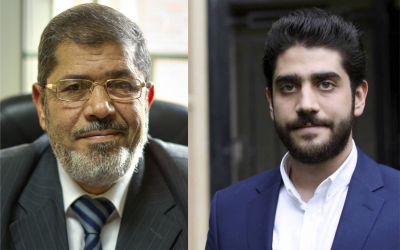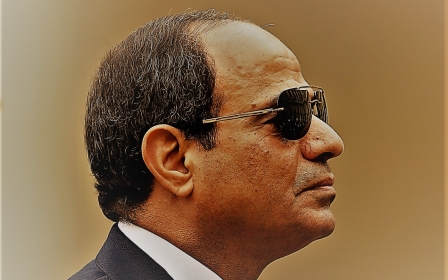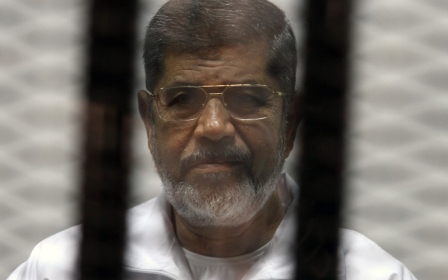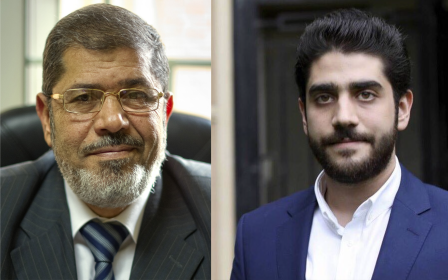Imprisoned son of Mohamed Morsi at risk of being 'poisoned', lawyers say
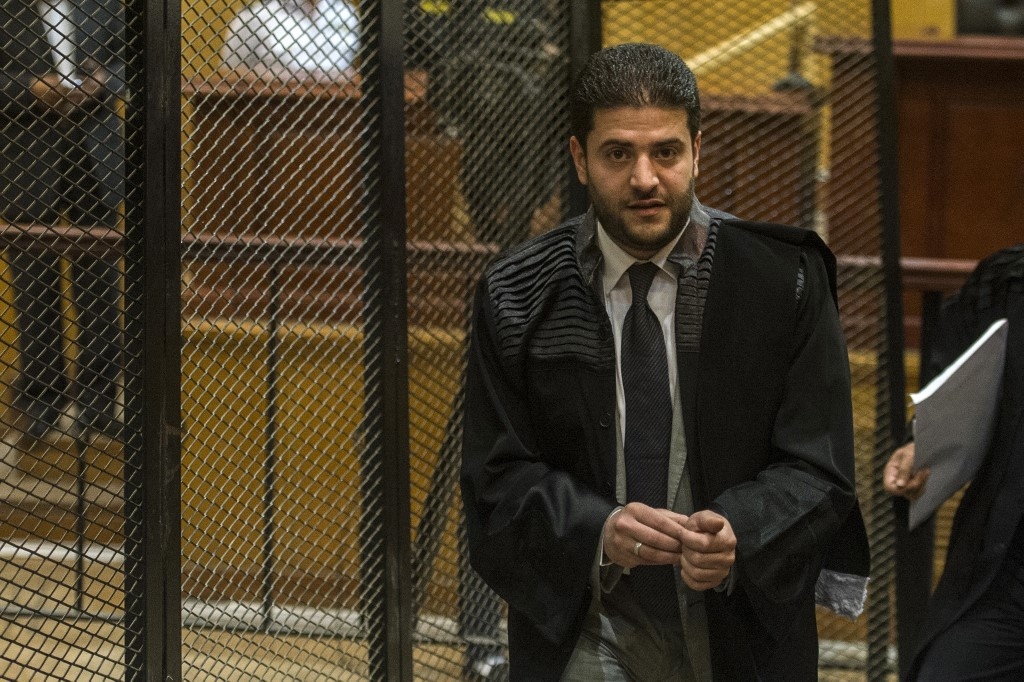
The legal team representing the family of former Egyptian President Mohamed Morsi has expressed grave concern regarding the safety of his imprisoned son, warning he's at risk of being "poisoned".
In a statement sent to Middle East Eye on Tuesday, legal firm Guernica 37 International Justice Chambers said that Osama Morsi faces "a very credible risk of being poisoned in prison and that he is being subjected to the same dangers to his life as his late father".
Osama was arrested on 16 December 2016 on charges of planning to organise protests, in what his family's legal team have described as a spurious allegation.
"The authorities have refused to receive any complaints and refused to take any steps to protect his rights and his life is now believed to be in imminent danger," a letter from the legal team read.
Osama's father, Mohamed Morsi, was elected as Egypt's first-ever democratically elected president in 2012, after a popular uprising overthrew longtime leader Hosni Mubarak.
He was later deposed and then jailed in a military coup by his then-defence minister, Abdel Fattah el-Sisi.
Morsi died in June 2019 after collapsing in a trial over charges of espionage.
One account of Morsi's final moments, obtained by Middle East Eye - details of which have been corroborated by other reports of the court session - described people banging on cages, shouting for security and screaming following Morsi's collapse.
Osama's younger brother Abdullah died months later of a heart attack.
"We must highlight the fact that Osama's father and younger brother both died as a result of their opposition to the military regime led by Egyptian army chief, Abdel Fattah el-Sisi," the lawyers said.
Hunger strike
Toby Cadman, one of the family's lawyer, told MEE on Tuesday that Osama had started a hunger strike to highlight his precarious situation.
"He started a hunger strike because he is very concerned that they are trying to poison him by prison food," he said.
"He is being isolated from family and lawyers. There is a realistic fear that they are trying to kill him," he added.
In November, UN independent experts said the detention conditions of Morsi, who had been imprisoned since 2013, may have directly led to his death in a Cairo courtroom on 17 June last year.
A panel of UN experts - including Agnes Callamard, special rapporteur on extrajudicial, summary or arbitrary executions - and the UN Working Group on Arbitrary Detention concluded that Morsi was held under "brutal" conditions.
Egyptian state television announced that Morsi had collapsed during the court hearing on espionage charges, and later died suddenly, reportedly of a heart attack.
Middle East Eye delivers independent and unrivalled coverage and analysis of the Middle East, North Africa and beyond. To learn more about republishing this content and the associated fees, please fill out this form. More about MEE can be found here.


